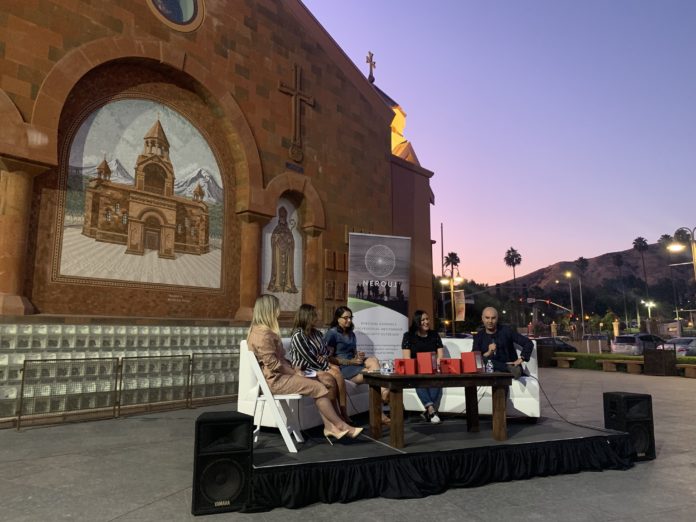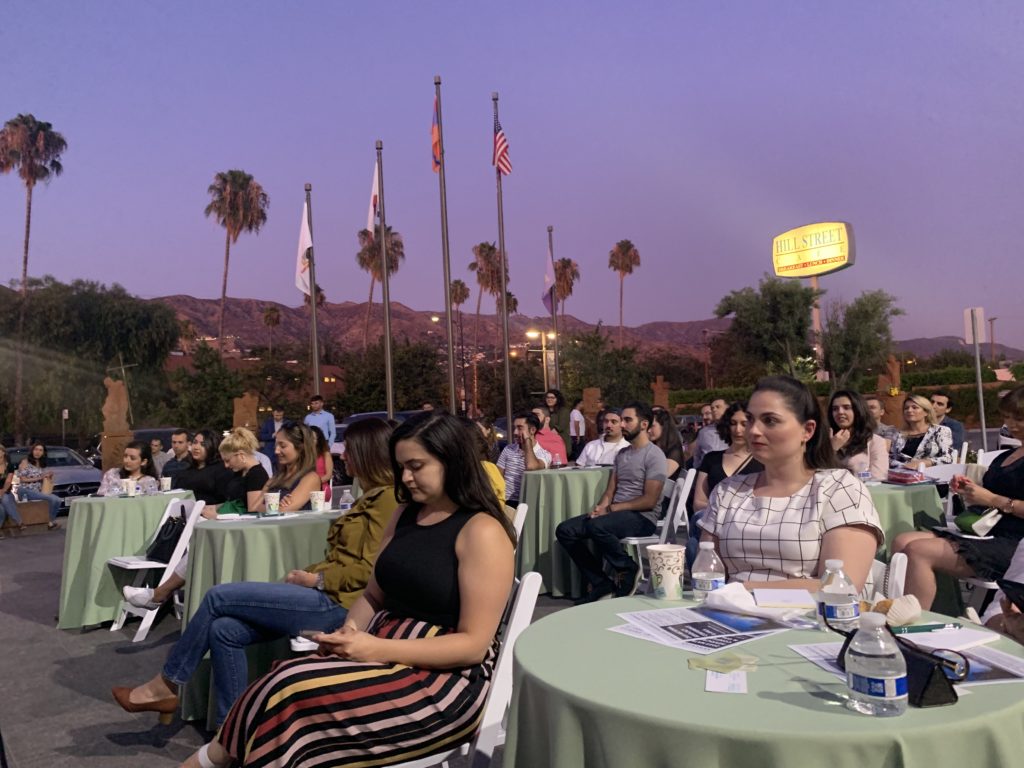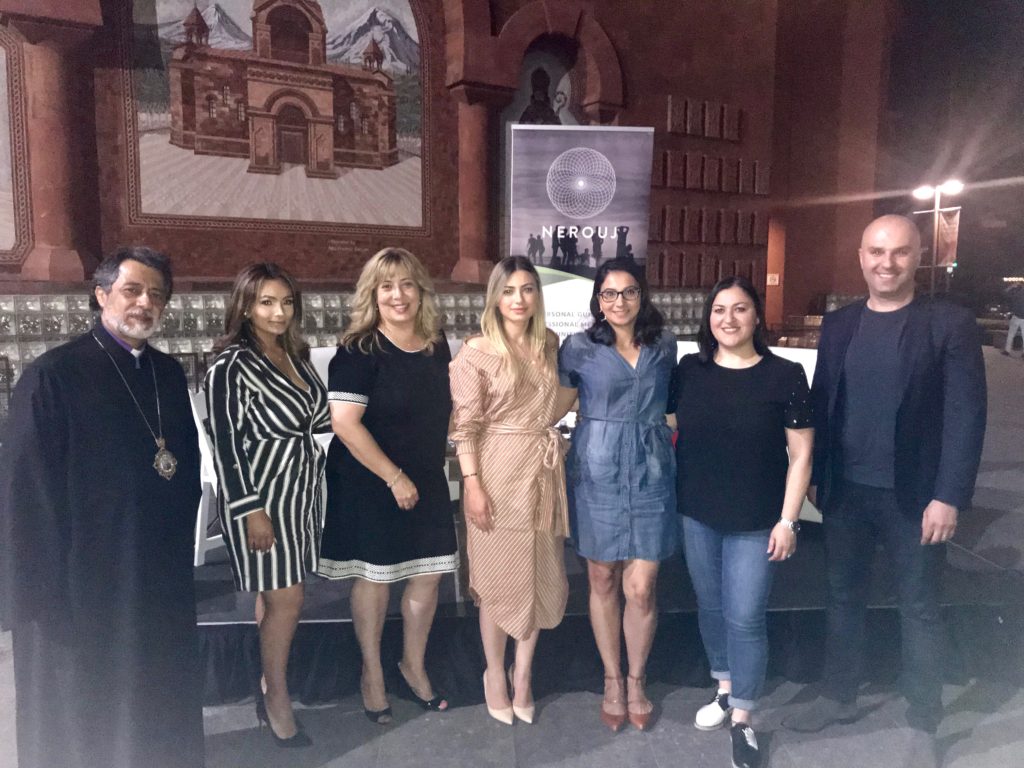BURBANK, Calif. – The visionary platform of Nerouj, a leading organization that uplifts and inspires the Armenian youth in Los Angeles in a tangible and practical manner, presented its Entrepreneurial Series on Wednesday, August 21, 2019, at the Western Diocese of the Armenian Apostolic Church of North America, under the auspices of its Primate, Archbishop Hovnan Derderian.
In an ever-evolving world where individuals, particularly the youth, are increasingly charting new territories and embracing unconventional paths, panels such as these are both relevant and necessary to provide guidance and support. The Executive Committee of Nerouj (literally translated as “inner strength”) seeks to create a community for Armenian youth to connect and network with one another while gaining insight and securing their foothold in the professional world through mentorship and events. The Entrepreneurial Series – where self-made businessmen and women share their journeys of striking out on their own in various fields, including in technology, beauty, design and apparel – comes on the heels of past successful programs including Nerouj Connect and a Chef’s Series that opened new horizons for Armenian youth.
The members of the entrepreneur panel included Tatevik Gevorgyan, Co-Founder of Beauty on Wheels; Ani Torosyan, CEO and Co-Founder of DishDivvy; Arpi Krikorian, designer and founder of Arpi Krikorian Products and Paul Garibian, founder of The Classic T-Shirt Company. Lusine Daglian, Nerouj Team Member, served as the evening’s moderator, asking pragmatic questions in a conversational style so the audience could gain a clear understanding of the inner workings of launching a business.
The overarching theme among the panelists as to why they founded their own businesses was that they sought to fulfill a need and provide a larger purpose for the community – whether it was creating fair trade t-shirts, offering cooks the chance to earn an income in their kitchens, designing artwork that reflected culture and heritage or making beauty more mobile and accessible.
After 15 years in the technology industry, Paul decided to branch out by manufacturing a product that would address environmental issues. His line of t-shirts at The Classic T-Shirt Company uses organic materials, recycled packaging and gives back to environmental causes with every purchase.
“My goal is to be ethical while creating a high-quality and profitable product,” said Paul, a Product and Business Development Leader and a graduate of The Wharton School at the University of Pennsylvania.












